
Find Help
More Items From Ergsy search
-

What is a pregnancy test?
Relevance: 100%
-

Can a pregnancy test expire?
Relevance: 95%
-

How soon can a pregnancy test detect pregnancy?
Relevance: 94%
-

What if my pregnancy test is positive?
Relevance: 94%
-

What are the different types of pregnancy tests?
Relevance: 91%
-

How does a pregnancy test work?
Relevance: 91%
-
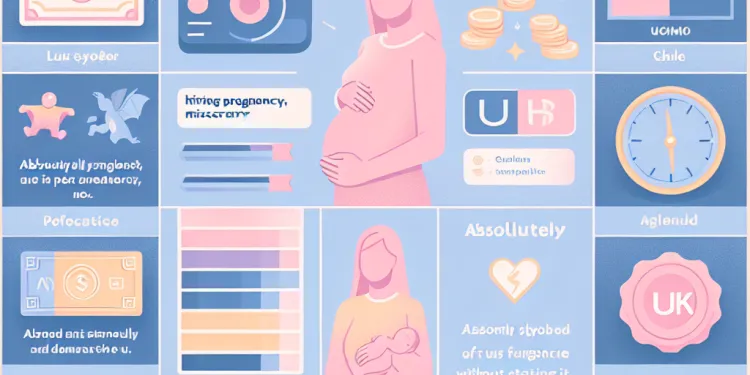
Can a pregnancy test detect a miscarriage?
Relevance: 91%
-

When should I take a pregnancy test?
Relevance: 91%
-

Are digital pregnancy tests more accurate than non-digital tests?
Relevance: 88%
-

Can medications affect pregnancy test results?
Relevance: 88%
-

Can stress affect a pregnancy test result?
Relevance: 87%
-

Do all pregnancy tests detect the same levels of hCG?
Relevance: 84%
-

What if my pregnancy test is negative and I still think I'm pregnant?
Relevance: 84%
-
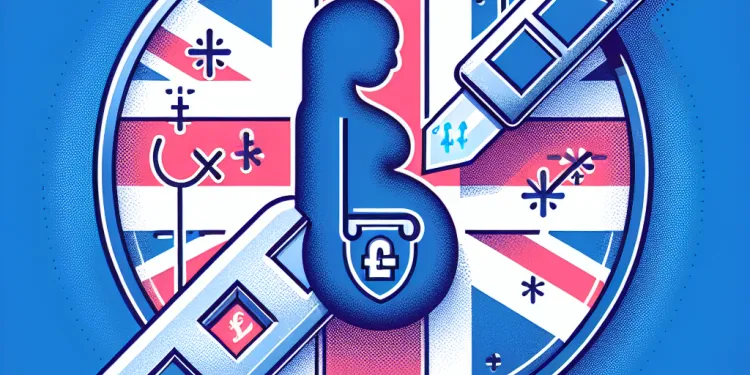
What can cause a false positive pregnancy test?
Relevance: 84%
-

What should I do if I get unclear results on a pregnancy test?
Relevance: 82%
-

Can drinking a lot of water affect pregnancy test results?
Relevance: 82%
-

What does an evaporation line mean on a pregnancy test?
Relevance: 81%
-

How long should I wait to read the results of a pregnancy test?
Relevance: 78%
-
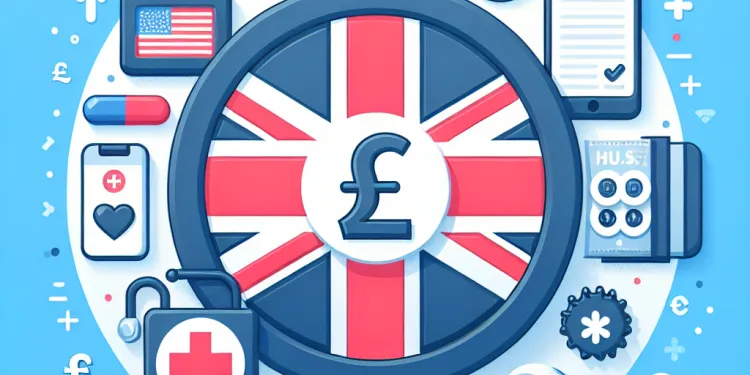
How accurate are home pregnancy tests?
Relevance: 70%
-

HIV and pregnancy | NHS
Relevance: 66%
-
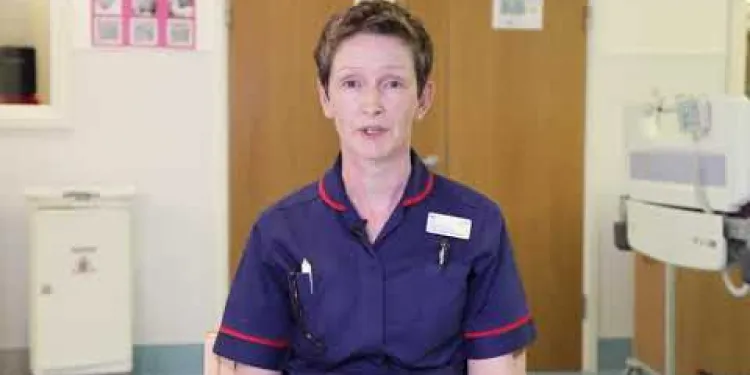
Gestational Diabetes during pregnancy
Relevance: 58%
-
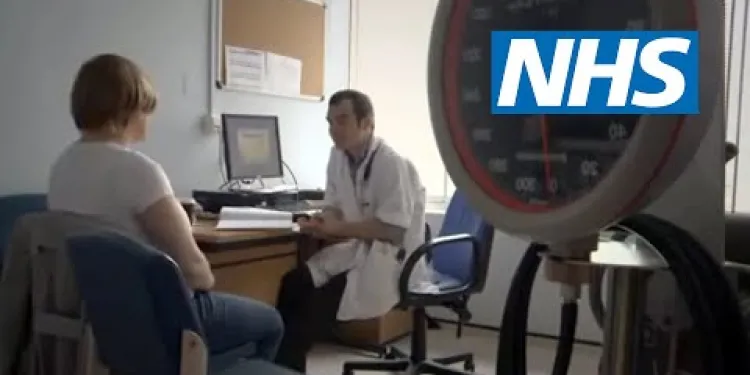
What should I do if I start bleeding during early pregnancy? | NHS
Relevance: 57%
-

Will the test affect my menstrual cycle?
Relevance: 56%
-

Is cycling safe during pregnancy?
Relevance: 54%
-
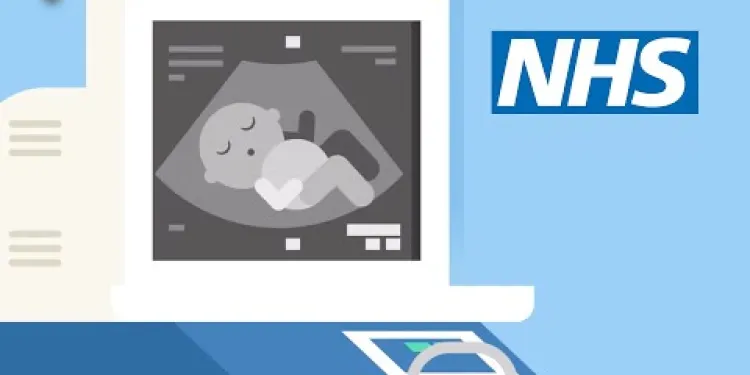
Screening tests for you and your baby | NHS
Relevance: 53%
-

How can I ensure safety during pregnancy exercises?
Relevance: 53%
-

Can Zika virus affect pregnancy?
Relevance: 53%
-

What exercises can I do during pregnancy?
Relevance: 52%
-

Are there any exercises to avoid during pregnancy?
Relevance: 52%
-

How does exercise benefit pregnancy?
Relevance: 52%
-

Can I continue running during pregnancy?
Relevance: 52%
-

Can I do abdominal exercises during pregnancy?
Relevance: 52%
-

Do morning urine tests give more accurate results?
Relevance: 52%
-

How often should I exercise during pregnancy?
Relevance: 51%
-

Does IVF guarantee pregnancy?
Relevance: 51%
-

Can postnatal depression affect subsequent pregnancies?
Relevance: 50%
-

Do I need to consult a doctor before exercising during pregnancy?
Relevance: 49%
-

Is swimming a good exercise during pregnancy?
Relevance: 49%
-

What is a CA-125 test?
Relevance: 48%
-

Can I take exercise classes during pregnancy?
Relevance: 48%
Understanding Pregnancy Tests
A pregnancy test is a tool used to determine whether a person is pregnant by detecting the presence of the hormone human chorionic gonadotropin (hCG) in urine. This hormone is produced by the placenta shortly after the embryo attaches to the uterine lining, and its levels can be detected relatively soon after conception.
Types of Pregnancy Tests
There are mainly two types of pregnancy tests available: home pregnancy tests (HPTs) and clinical tests. Home pregnancy tests are easily accessible over-the-counter in UK pharmacies and supermarkets. They are convenient, private, and can be done in the comfort of one's own home. Clinical tests, on the other hand, are performed in a healthcare setting and may include both urine and blood tests to check for hCG levels.
How Home Pregnancy Tests Work
Home pregnancy tests work by using a strip coated with a chemical that reacts with hCG. When urine is applied to the test, the chemical reaction causes a colour change or creates a line on the test that indicates the presence of hCG. Most home tests display results as a line or a symbol and provide instructions on how to interpret positive or negative results. It is important to follow the instructions carefully for accurate results.
Accuracy of Pregnancy Tests
The accuracy of a home pregnancy test depends on several factors, including how closely the test instructions are followed, how soon after conception the test is taken, and the sensitivity of the test. Most home pregnancy tests claim to be around 99% accurate when used from the first day of a missed period. Some newer tests offer early detection, allowing testing a few days before a missed period, but these may be less accurate.
Interpreting Results
A positive result indicates the presence of hCG and suggests pregnancy, whereas a negative result indicates the absence of detectable levels of hCG at the time of testing. However, false positives and negatives can occur. A false negative can result if the test is taken too early or if the urine is too diluted. A false positive, although less common, can result from certain medications or medical conditions.
When to Test and What to Do Next
For the most reliable result, it is advisable to wait until after a missed period to take a home pregnancy test. If the result is positive, it is recommended to consult with a healthcare provider to confirm the pregnancy and begin prenatal care. If the result is negative but pregnancy is still suspected, it’s advisable to retest a few days later or seek a clinical test for confirmation.
Understanding Pregnancy Tests
A pregnancy test shows if someone is going to have a baby. It works by finding a special hormone called hCG in pee (urine). This hormone starts being made when a baby begins to grow in the tummy (uterus).
Types of Pregnancy Tests
There are two main types of pregnancy tests: home tests and clinical tests. Home tests can be bought from shops and used at home. They are easy to use and private. Clinical tests need to be done by a doctor or nurse. These can check pee and blood for the baby hormone.
How Home Pregnancy Tests Work
Home tests have a special strip that changes color if it finds hCG. You pee on the strip, and it shows a line or symbol to tell you the result. Always read the instructions carefully to know what the result means.
Accuracy of Pregnancy Tests
How well a home test works depends on when you take it and how you use it. Most tests are about 99% right if used after the first day of a missed period. Some tests can be used a few days before a missed period, but they might not be as accurate.
Interpreting Results
If the test is positive, it means you might be pregnant. If the test is negative, it means you might not be pregnant. Sometimes, tests can give wrong results. A negative result might happen if you take the test too early. Too much water in your pee can also affect the result. Some medicines and health problems might cause a wrong positive result.
When to Test and What to Do Next
For the best result, take the test after you miss your period. If it says you are pregnant, see a doctor to check and start care for your baby. If it says you are not pregnant but you think you are, test again in a few days or ask a doctor for a clinical test.
Frequently Asked Questions
What is a pregnancy test?
A pregnancy test is a tool used to determine if a woman is pregnant by detecting the presence of the hormone hCG in her body.
How does a pregnancy test work?
A pregnancy test works by detecting the hormone hCG (human chorionic gonadotropin) in a woman’s urine or blood, which is present when she is pregnant.
What is hCG?
hCG, or human chorionic gonadotropin, is a hormone produced by the placenta shortly after the embryo attaches to the uterine lining.
When can I take a pregnancy test?
You can take a home pregnancy test from the first day of your missed period, although some tests may be more sensitive and able to detect hCG earlier.
Are home pregnancy tests accurate?
When used correctly, home pregnancy tests are about 99% accurate. However, accuracy can be affected by factors like the timing of the test or improper use.
What types of pregnancy tests are there?
There are two main types of pregnancy tests: urine tests, which can be done at home or in a clinic, and blood tests, which are conducted by healthcare providers.
How do I use a home pregnancy test?
To use a home pregnancy test, collect urine in a cup and dip the test strip, or hold the test stick under your urine stream, then wait for the recommended time to check the result.
What should I do if the pregnancy test is positive?
If your pregnancy test is positive, it's important to contact your healthcare provider to confirm the pregnancy with a blood test and begin prenatal care.
Can medications affect the results of a pregnancy test?
Most medications do not affect pregnancy test results, but fertility treatments containing hCG can cause false positive results.
Can a pregnancy test give a false negative?
Yes, a false negative can occur if the test is taken too early, if the urine is too diluted, or if the test is not performed correctly.
What is the best time of day to take a pregnancy test?
The best time to take a home pregnancy test is in the morning when your urine is most concentrated, increasing the likelihood of detecting hCG.
How soon after conception can hCG be detected?
hCG can be detected in the blood as early as 6 to 8 days after conception and usually in the urine about 10 to 14 days after conception.
Why might a pregnancy test show a faint line?
A faint line on a pregnancy test may indicate early pregnancy when hCG levels are still low. It is advised to retest in a few days.
Do pregnancy tests expire?
Yes, pregnancy tests have an expiration date and using an expired test can lead to inaccurate results.
Can stress affect a pregnancy test?
Stress does not affect the accuracy of a pregnancy test, as it does not impact hCG levels in the body.
How should I store a pregnancy test?
Store pregnancy tests in a cool, dry place and avoid exposure to moisture or extreme temperatures, which can affect their accuracy.
Are digital pregnancy tests more accurate than line tests?
Digital pregnancy tests are not necessarily more accurate than line tests, but they may be easier to read as they provide a clear result.
How do blood pregnancy tests differ from urine tests?
Blood tests can detect lower levels of hCG and determine the specific amount present, while urine tests provide a simple positive or negative result.
What factors might lead to a false positive result?
False positives can occur due to recent pregnancy loss, certain medical conditions, or medications containing hCG.
Can drinking too much water affect the test result?
Yes, drinking excessive amounts of water before taking a pregnancy test can dilute your urine, potentially leading to a false negative result.
What is a pregnancy test?
A pregnancy test checks if a baby is growing in a woman's belly.
It tells if you are pregnant with a baby. This helps you know early.
There are some ways to do a pregnancy test:
- You can use a kit at home. You pee on a stick and wait a few minutes to see if the result shows you are pregnant.
- You can visit a doctor. They can do a blood test or another test to be sure.
Here are some tips when using a pregnancy test:
- Read the instructions carefully. This will tell you how to use the test.
- A good time to test is in the morning when you wake up. This is because your pee is the strongest in the morning.
- If you find it hard, ask someone you trust to help you.
A pregnancy test is something you use to find out if a woman is going to have a baby. It looks for a special thing in her body called hCG.
How does a pregnancy test work?
A pregnancy test tells you if you are going to have a baby.
When a woman is pregnant, her body makes something called a "pregnancy hormone".
This hormone is called HCG. It is in her pee (urine).
A pregnancy test looks for HCG in pee.
You can follow the steps on the box to do the test.
If the test shows one line, it means "not pregnant".
If the test shows two lines, it means "pregnant".
If you need help, ask a friend or family member.
You can also ask a doctor or nurse for support.
A pregnancy test looks for a special hormone called hCG in a woman's pee or blood. This hormone is there when she is having a baby.
What is hCG?
hCG is a hormone. Hormones are special chemicals in the body.
hCG helps a baby grow inside a mother's tummy when she is pregnant.
If you need help reading, you can:
- Listen to the text with a screen reader.
- Ask someone to read it with you.
- Use a dictionary to understand new words.
hCG is a special chemical made by the placenta. The placenta is part of a pregnant woman's body. This chemical is made soon after the tiny baby starts to grow inside the mom.
When should I take a pregnancy test?
You can take a pregnancy test:
- After you miss your period.
- If you feel pregnant.
Tips to help you:
- Look at the test instructions.
- Use a calendar to track your period.
If you need help, ask a friend or a health worker.
You can do a home pregnancy test when you've missed your period for one day. Some tests are extra sensitive and can find out if you're pregnant even before then.
Do home pregnancy tests work well?
Home pregnancy tests work well if you use them the right way. They are right 99% of the time. But, they might not work well if you take the test too early or do it differently from the instructions.
What kinds of pregnancy tests are there?
There are two main kinds of tests to find out if you are pregnant:
- Urine Test: You pee on a stick or in a cup. It tells you if you might have a baby. You can do this at home or at a doctor's office.
- Blood Test: A doctor takes a little bit of your blood. They check the blood to see if you might have a baby.
If you find reading hard, you can ask someone to read the test instructions to you.
Use a timer to make sure you wait the right amount of time for the test results.
There are two main types of pregnancy tests.
The first type is a pee test. You can do this test at home or go to a clinic.
The second type is a blood test. Doctors or nurses do this test for you.
How do I use a home pregnancy test?
A home pregnancy test checks if you might be pregnant. Here is how you can use it:
1. Buy a Test Kit
You can buy a test at a store or pharmacy.
2. Read the Instructions
Look at the steps on the box. Each test can be a little different.
3. Take the Test
Usually, you need to pee on a stick or in a cup. Follow the steps on the box.
4. Wait and Check
Wait a few minutes. The test will show lines or words to say if you are pregnant.
If you have questions, ask an adult or a doctor for help. They can explain more.
If you want to check if you are pregnant at home, you can use a special stick called a home pregnancy test. Here’s how:
1. First, you need a cup to collect your pee.
2. Then, put the end of the test stick in the cup with your pee, or hold the stick to catch the pee when you go to the toilet.
3. Wait for the test to tell you the answer. Look at how long the test says to wait in the instructions.
If you want help, ask someone to read the instructions with you or use a timer to know when it's done. You can also watch a video online that shows you how to do it.
What to Do If Your Pregnancy Test Says "Yes"?
If your test shows you are pregnant, here are some steps you can take:
- Visit the Doctor: It is important to go see a doctor. They will help you with the next steps and answer any questions.
- Talk to Someone: Share your news with someone you trust. This could be a family member or a close friend.
- Learn More: There are many books and websites about pregnancy where you can learn more. Talking to your doctor is the best way to get the right information.
- Eat Well: Eating healthy foods is good for you and the baby. Ask your doctor which foods are the best.
- Take Care of Yourself: Rest and take breaks when you feel tired. It is important to look after your body.
If reading is hard, ask someone to read with you. You can also use audiobooks or videos that explain things more simply.
If your pregnancy test says you are pregnant, you should call your doctor. They can check to make sure with a blood test and help you start taking care of the baby.
Can medicine change what a pregnancy test says?
Most medicines do not change pregnancy test results. But, if you use fertility treatments with hCG, they can make the test say you are pregnant when you are not.
Can a pregnancy test say "not pregnant" when you are pregnant?
Yes, sometimes a pregnancy test can say "not pregnant" even if you are pregnant. This is called a false negative.
Here are some ways to make sure your test is right:
- Read the instructions on the test box carefully.
- Use the test first thing in the morning when you wake up. Your pee is stronger then.
- If the test says "not pregnant" but you think you might be, try taking another test in a few days.
- Ask a grown-up or a doctor for help if you're not sure.
Yes, sometimes a test can say "no" even if it should say "yes." This can happen if you take the test too soon, if your pee has too much water in it, or if you don't do the test the right way.
When is the best time to take a pregnancy test?
It is best to take a pregnancy test in the morning. Use the first pee after you wake up. This helps get the best result.
You can set a reminder on your phone to help you remember to take the test.
If you find it hard to read, ask someone to help or use tools that read aloud text to you.
The best time to take a home pregnancy test is in the morning. This is because your pee is strongest then, which helps the test find hCG easier.
When can you find hCG after a baby starts to grow?
hCG is a thing that shows if someone is pregnant. You can find it in blood 6 to 8 days after a baby starts to grow. You can find it in pee about 10 to 14 days after.
Why does the pregnancy test show a faint line?
A pregnancy test can show a faint line because there is a little bit of pregnancy hormone in your body. This hormone is called hCG. Sometimes, you are just at the very start of being pregnant, so there is not much hCG yet.
If you see a faint line, you might want to:
- Wait a few days and take another test. The line might be darker then.
- Use a timer to know when to check the test. Follow the test instructions carefully.
- Ask a grown-up or doctor if you need more help.
If you see a faint line on a pregnancy test, it might mean you are in the early stages of pregnancy. This is because the pregnancy hormone (called hCG) is still low. It is a good idea to take another test in a few days.
Do Pregnancy Tests Go Bad?
Pregnancy tests have a date when they stop working well. This is called the "expiry date."
Look for the "expiry date" on the box or test. It will tell you when not to use it.
If the "expiry date" is past, the test might not work right.
To check the date:
- Find the box or test.
- Look for the date printed on it.
Get help:
- Ask someone to help you read the date.
- Use a magnifying glass to see better.
Yes, pregnancy tests can go out of date. If you use an old test, it might not work right.
Can stress change a pregnancy test result?
Worrying or feeling stressed does not change the result of a pregnancy test. The test looks for a special hormone in urine to see if someone is pregnant. This hormone is called hCG.
If you are worried, take deep breaths and try to stay calm. Talking to a friend or using a meditation app can help you feel better.
Feeling stressed does not change if a pregnancy test is right or wrong. Stress does not change the hCG in your body.
Tips:
- Use a calming app to help you feel relaxed.
- Take deep breaths before taking the test.
How do I keep a pregnancy test safe?
1. Keep it in the box. Don't take it out until you need to use it.
2. Store it in a cool, dry place. Avoid places with lots of heat or moisture, like the bathroom.
3. Check the expiry date. Make sure it's not out of date before you use it.
Ask an adult if you need help. You can also use a calendar or reminders on your phone to remember the expiry date.
Keep pregnancy tests in a cool and dry place. Don’t let them get wet or too hot or too cold, because this can make them not work properly.
Are digital pregnancy tests better than line tests?
Digital pregnancy tests are not better than line tests. Both work well to tell if you are pregnant.
Here is how they work:
- Digital tests show words like "pregnant" or "not pregnant".
- Line tests show lines. One line means not pregnant, and two lines mean pregnant.
Both can be tricky sometimes and you might need to use another test. Here are tips to help:
- Read the instructions carefully.
- Use a timer to check the results at the right time.
- Ask someone you trust for help if you are unsure.
- Use bright light to see the lines clearly if using a line test.
Digital pregnancy tests are not more accurate than line tests. But, they are easier to read because they show the result clearly.
What's the difference between blood pregnancy tests and urine tests?
Blood tests can find out how much hCG is in your body. They can tell if you have a little bit or a lot. Urine tests just tell you yes or no if hCG is there.
What can cause a test to be wrong and say “yes” when it should say “no”?
Sometimes a test can say you are pregnant, even if you are not. This can happen because:
- You recently lost a pregnancy.
- You have certain medical conditions.
- You take medicines with hCG in them.
If you are unsure, ask a doctor or nurse for help.
Can drinking a lot of water change the test result?
If you drink too much water, it might change your test result.
Here are some tips to help:
- Drink a normal amount of water before a test.
- If you feel confused, ask a friend or adult for help.
- Use pictures or videos to understand better.
Yes, if you drink too much water before taking a pregnancy test, it can make your pee too watery. This might make the test say you are not pregnant, even if you are.
Useful Links
This website offers general information and is not a substitute for professional advice.
Always seek guidance from qualified professionals.
If you have any medical concerns or need urgent help, contact a healthcare professional or emergency services immediately.
Some of this content was generated with AI assistance. We’ve done our best to keep it accurate, helpful, and human-friendly.
- Ergsy carfully checks the information in the videos we provide here.
- Videos shown by Youtube after a video has completed, have NOT been reviewed by ERGSY.
- To view, click the arrow in centre of video.
- Most of the videos you find here will have subtitles and/or closed captions available.
- You may need to turn these on, and choose your preferred language.
- Go to the video you'd like to watch.
- If closed captions (CC) are available, settings will be visible on the bottom right of the video player.
- To turn on Captions, click settings .
- To turn off Captions, click settings again.
More Items From Ergsy search
-

What is a pregnancy test?
Relevance: 100%
-

Can a pregnancy test expire?
Relevance: 95%
-

How soon can a pregnancy test detect pregnancy?
Relevance: 94%
-

What if my pregnancy test is positive?
Relevance: 94%
-

What are the different types of pregnancy tests?
Relevance: 91%
-

How does a pregnancy test work?
Relevance: 91%
-

Can a pregnancy test detect a miscarriage?
Relevance: 91%
-

When should I take a pregnancy test?
Relevance: 91%
-

Are digital pregnancy tests more accurate than non-digital tests?
Relevance: 88%
-

Can medications affect pregnancy test results?
Relevance: 88%
-

Can stress affect a pregnancy test result?
Relevance: 87%
-

Do all pregnancy tests detect the same levels of hCG?
Relevance: 84%
-

What if my pregnancy test is negative and I still think I'm pregnant?
Relevance: 84%
-

What can cause a false positive pregnancy test?
Relevance: 84%
-

What should I do if I get unclear results on a pregnancy test?
Relevance: 82%
-

Can drinking a lot of water affect pregnancy test results?
Relevance: 82%
-

What does an evaporation line mean on a pregnancy test?
Relevance: 81%
-

How long should I wait to read the results of a pregnancy test?
Relevance: 78%
-

How accurate are home pregnancy tests?
Relevance: 70%
-

HIV and pregnancy | NHS
Relevance: 66%
-

Gestational Diabetes during pregnancy
Relevance: 58%
-

What should I do if I start bleeding during early pregnancy? | NHS
Relevance: 57%
-

Will the test affect my menstrual cycle?
Relevance: 56%
-

Is cycling safe during pregnancy?
Relevance: 54%
-

Screening tests for you and your baby | NHS
Relevance: 53%
-

How can I ensure safety during pregnancy exercises?
Relevance: 53%
-

Can Zika virus affect pregnancy?
Relevance: 53%
-

What exercises can I do during pregnancy?
Relevance: 52%
-

Are there any exercises to avoid during pregnancy?
Relevance: 52%
-

How does exercise benefit pregnancy?
Relevance: 52%
-

Can I continue running during pregnancy?
Relevance: 52%
-

Can I do abdominal exercises during pregnancy?
Relevance: 52%
-

Do morning urine tests give more accurate results?
Relevance: 52%
-

How often should I exercise during pregnancy?
Relevance: 51%
-

Does IVF guarantee pregnancy?
Relevance: 51%
-

Can postnatal depression affect subsequent pregnancies?
Relevance: 50%
-

Do I need to consult a doctor before exercising during pregnancy?
Relevance: 49%
-

Is swimming a good exercise during pregnancy?
Relevance: 49%
-

What is a CA-125 test?
Relevance: 48%
-

Can I take exercise classes during pregnancy?
Relevance: 48%


